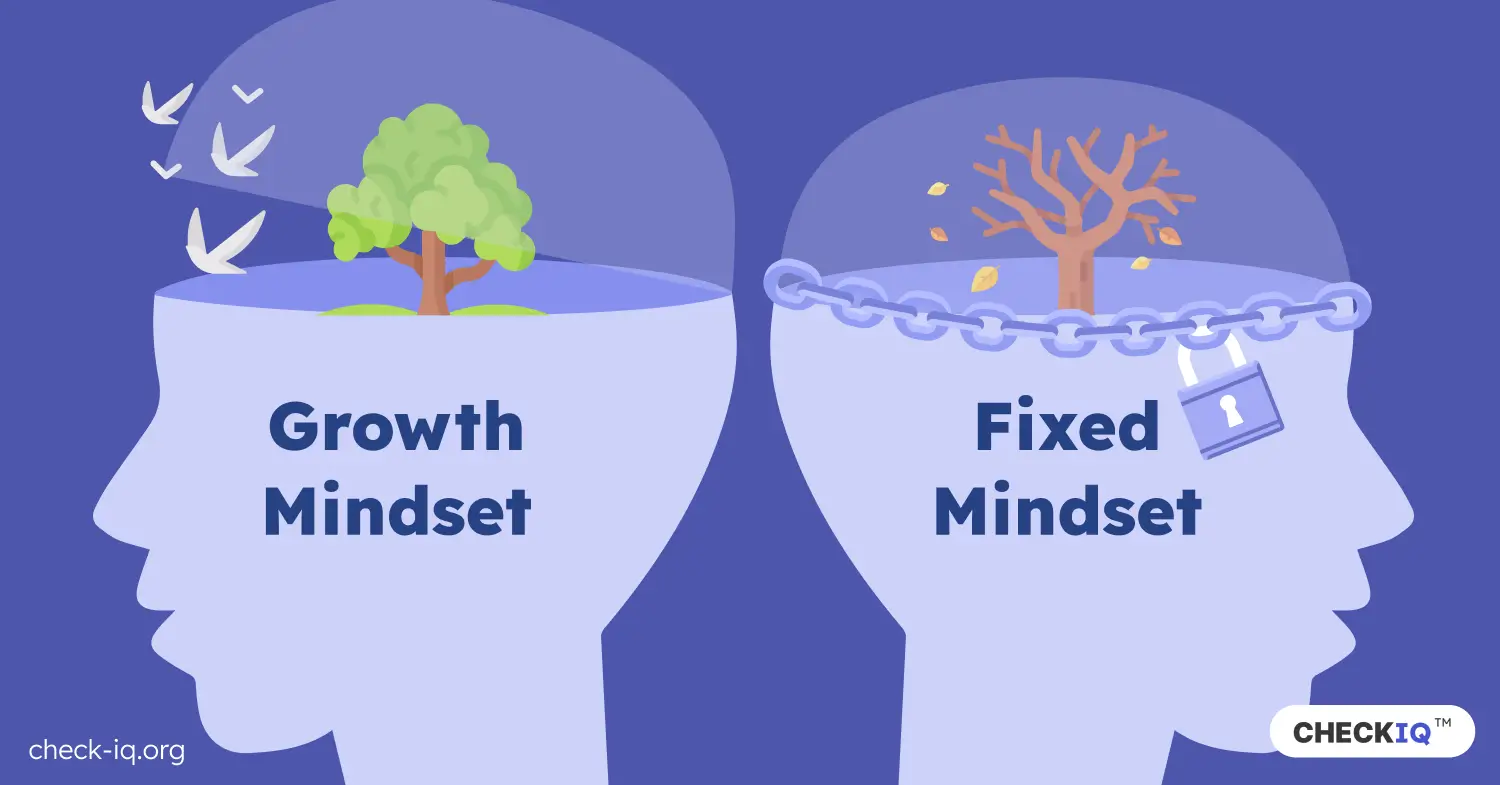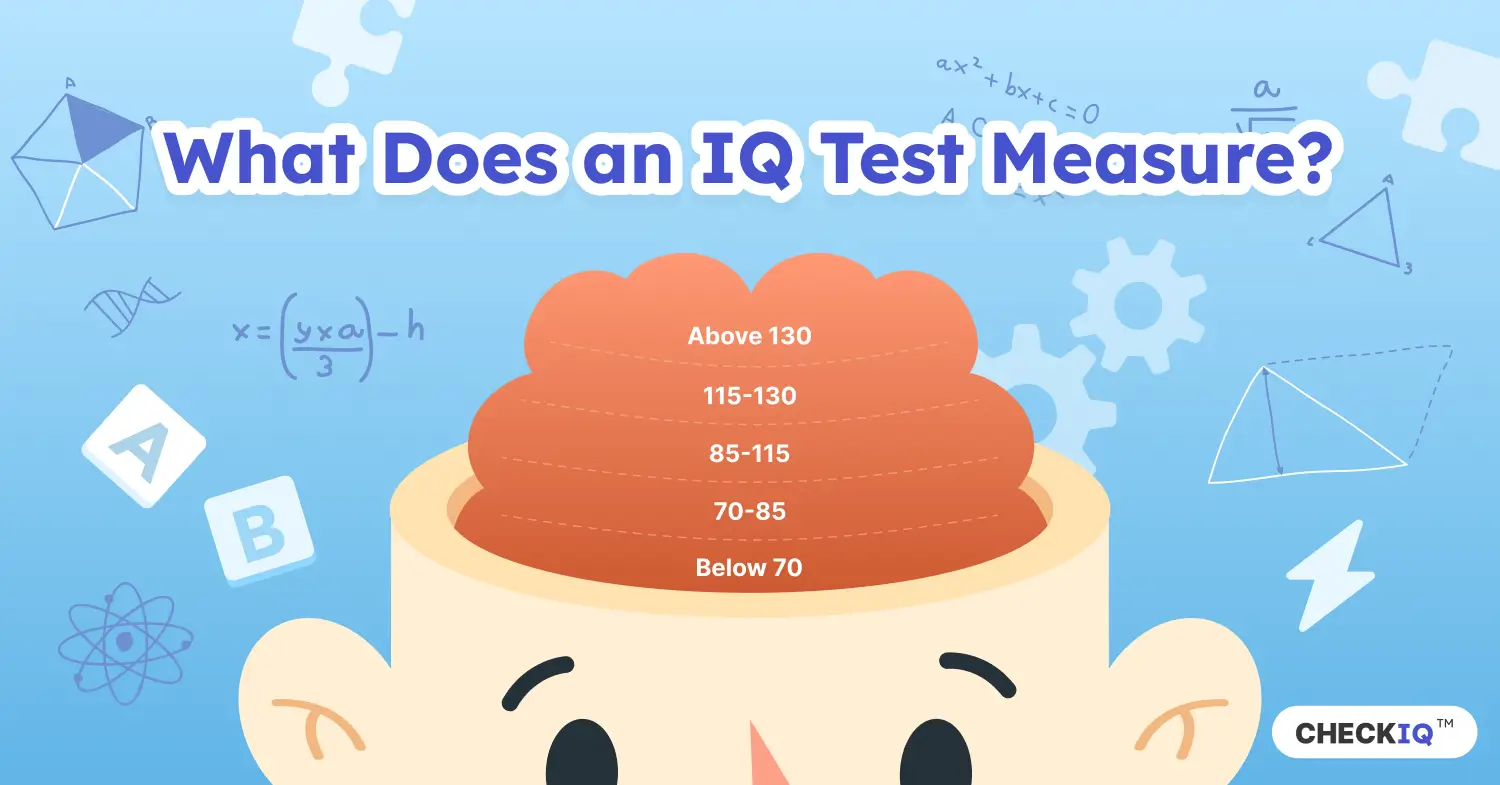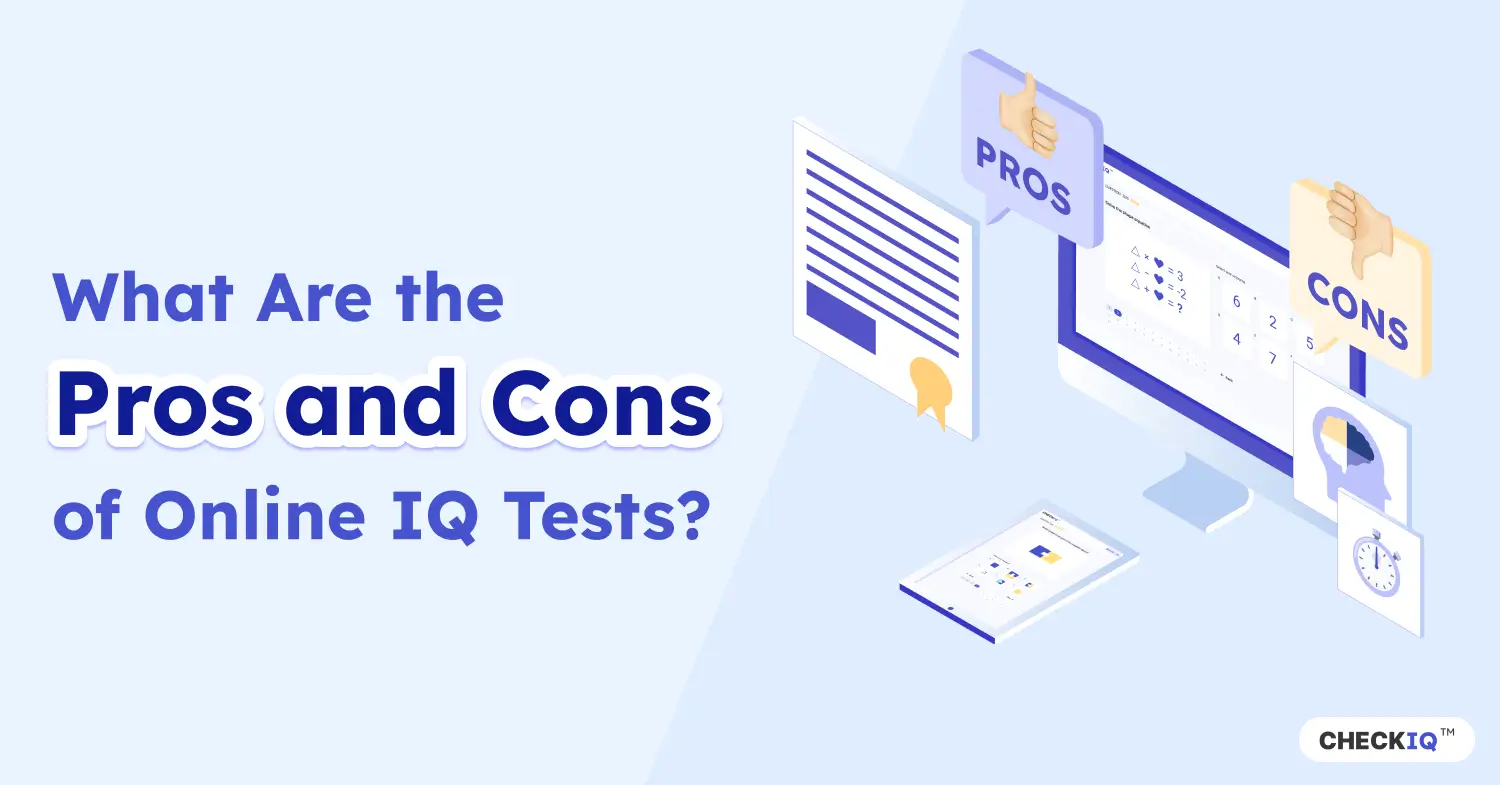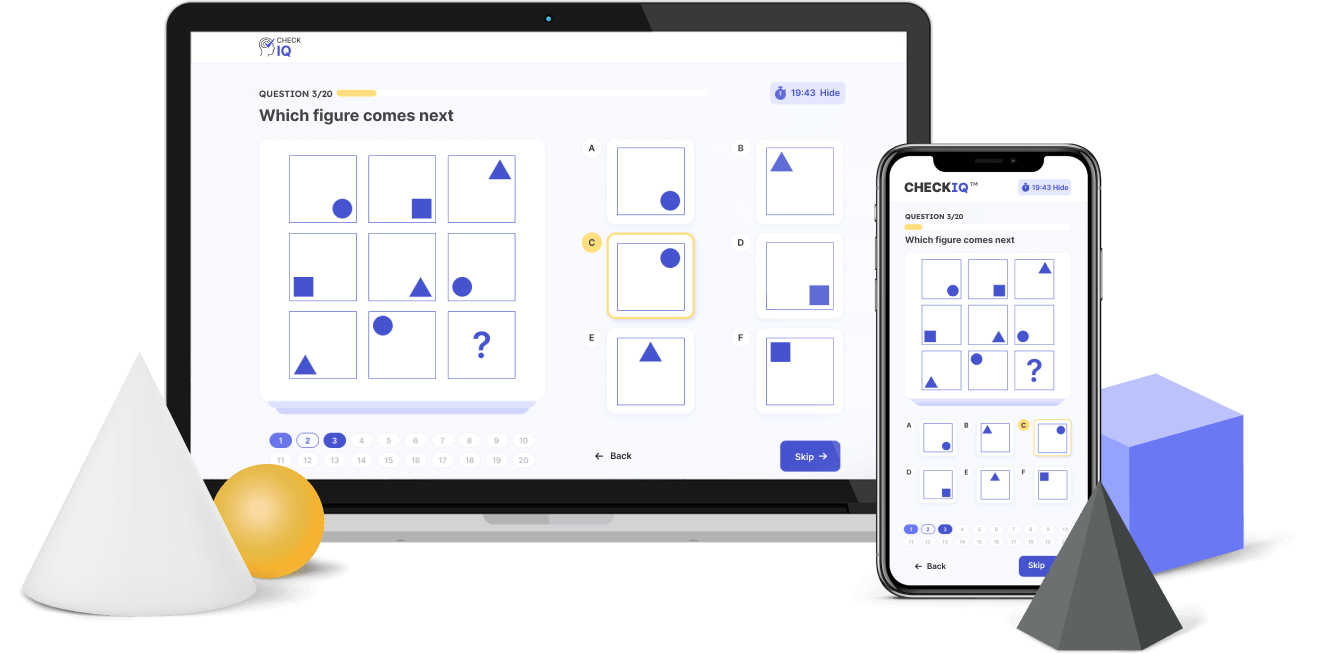All abilities can be improved, including those measured by IQ (Intelligence Quotient) tests – but by how much?
Some people who aren’t satisfied with their IQ scores may feel stuck or even inferior to others who are considered to have a high IQ. However, we’re here to let you know that things aren’t as bleak as they may seem.
Let’s see together what you can do to make the best out of your cognitive abilities:
Understanding Growth vs Fixed Mindsets
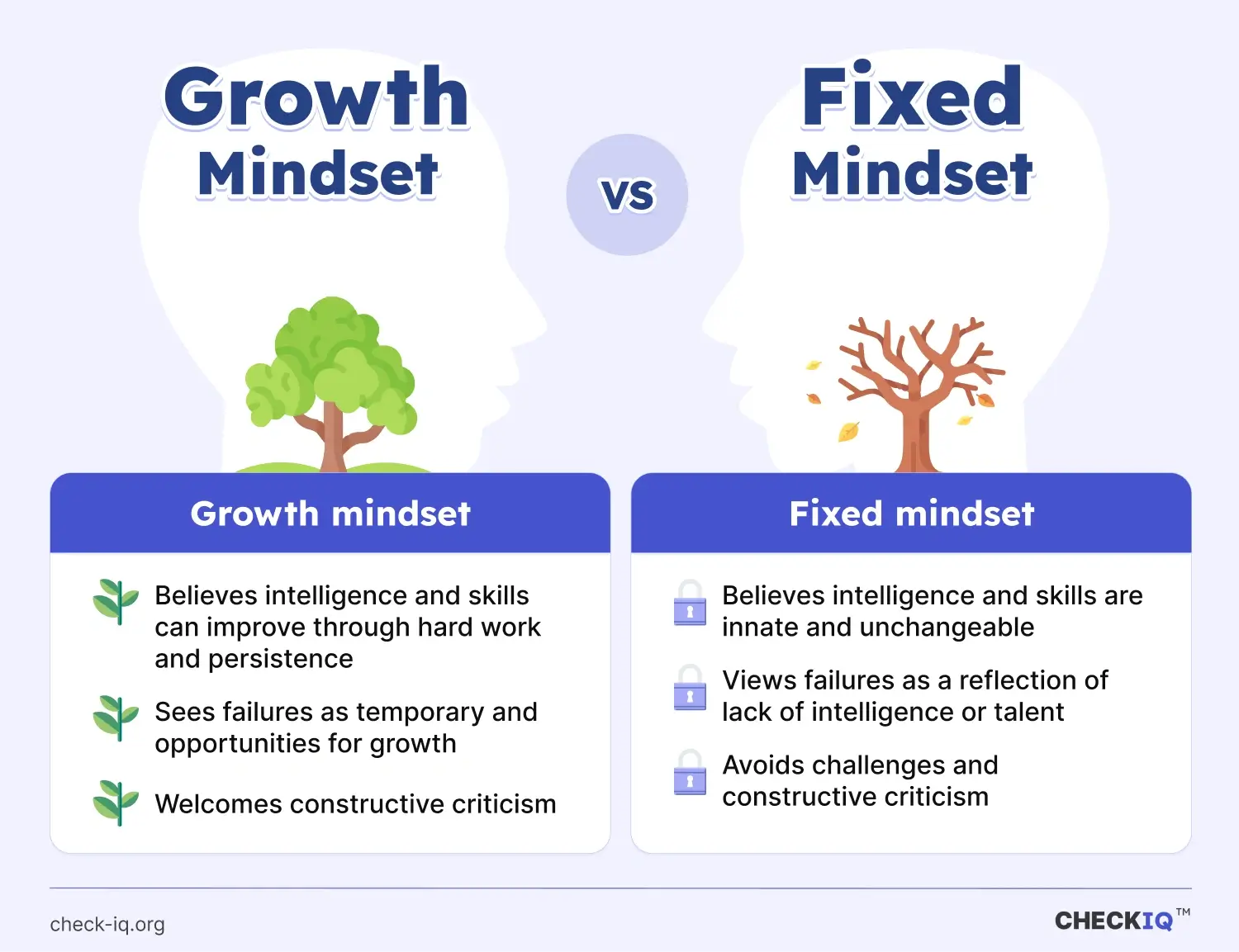
People who have a growth mindset believe that both intelligence and skills can be improved through hard work and persistence. For them, failures are only temporary, and constructive criticism is their closest friend.
Fixed mindsets are the polar opposite: people with this mentality generally believe that these traits cannot be significantly changed, and failures are often blamed on a lack of intelligence or innate talent, also referred to as “not being good enough."
For example, if I fail a test and have a growth mindset, I’ll be at ease knowing that I have to make a bigger effort next time to pass. With a fixed mindset, however, I may feel like I’ll never have the right abilities to get a better grade, and may even be reluctant to get feedback from others.
A reliable 100% adaptive online IQ Test. Get your IQ score immediately.
Start My IQ Test
Defining intelligence beyond numbers
Intelligence is more than what IQ tests can measure. To be more specific, it also includes your ability to:
- Adapt to new situations.
- Understand and handle abstract concepts.
- Apply knowledge to manipulate your environment.
As you can see, it’s also about how you perceive and process the world around you, not just how well you do on a test.
What's crucial to recognize is that intelligence isn't a static entity. A growing body of research, including influential work by Carol Dweck, demonstrates that intelligence can be developed over time through practice, experience, and effort.
Dweck's theory suggests that the way you see your own intellectual abilities can significantly impact how those abilities develop and lead to a spectrum of attitudes and behaviors when you're faced with learning new things.
Growth vs. fixed mindsets
Children, in particular, can be significantly influenced by these mindsets. The way they perceive their intelligence can shape their approach to learning and their educational trajectory.
Crucially, as you become an adult, the mindset you adopt profoundly impacts how you lead your life. By choosing to adopt a growth mindset, you acknowledge that while you may start at a certain level of ability, you can develop in almost any area with time, effort, and perseverance.
Even without immediate changes in beliefs about intelligence, as a study from North Carolina State University shows, embracing a growth mindset leads to a more productive, engaged, and successful approach to learning and facing life's difficulties.
The Influence of Mindset on IQ
Mindset can be a game-changer when it comes to your IQ, especially when you’re young.
To understand this better, let’s take a look at how they interact:
Can a growth mindset boost IQ?
While many believe IQ tests provide a score that reflects raw intelligence, 2018 research on this topic shows that an additional year of education can add between 1 and 5 points to your IQ score!
This is why it’s important to see intelligence as something that can improve with time and dedication. This perspective will motivate you and change the way you approach problems that test your intellect. Instead of giving up when you reach an obstacle, you push forward, seeing each challenge as an opportunity to expand your capabilities.
There's evidence to suggest that students who adopt a growth mindset may increase their academic achievement, which can, in turn, positively impact their IQ scores. In short, with a growth mindset, you're more likely to invest more energy into learning and effectively prepare for an IQ test.
How your mindset influences your ability to learn and grow
Studies suggest that having a growth mindset can affect the very way your brain operates during the learning process. When your perception of your abilities is under fire, and you're facing what feels like critical feedback, how you respond can hinge on your mindset.
If you believe that your intelligence is a fixed trait that you're either born with or without, negative feedback can set off alarm bells. Your brain reacts as if you’re being judged. This sort of reaction doesn’t encourage learning; in fact, it's likely to result in decreased performance. Essentially, under threat, a fixed mindset can provoke a response that is more about self-protection and less about growth and improvement.
Conversely, if you view intelligence through the lens of a growth mindset, negative feedback becomes a tool rather than a weapon. It's not a punishment but a stepping stone to getting smarter and more skilled.
Researchers have found that those with a growth mindset tend to exhibit brain activity that aligns with this positive approach to learning. They're more resilient in the face of criticism and better equipped to handle challenges both in and out of the classroom.
The impact of external factors like poverty on IQ
External factors can also influence cognitive function and mindset.
Take Poverty for example. While it would be an exaggeration to claim that all wealthy people have a high IQ, research from Princeton University, published in Science, indicates that poverty significantly reduces the brainpower needed for navigating other areas of life.
The study found that:
- The constant mental effort required to manage financial concerns leaves individuals with fewer cognitive resources to focus on education, job training, and other critical areas.
- This "mental bandwidth" depletion was shown to result in a drop in cognitive function akin to losing a night's sleep or a 13-point dip in IQ.
- The researchers highlighted that while poverty imposes a significant cognitive load, it is distinct from stress, which can sometimes enhance performance.
- Instead, poverty's immediate preoccupation with financial survival detracts from the ability to concentrate on long-term goals and improvements.
These findings highlight the importance of addressing external factors and cultivating a growth mindset to help you overcome obstacles life throws at you.
How to Develop a Growth Mindset
Cultivating a growth mindset is a rewarding endeavor. It starts with understanding that your abilities aren't fixed but can improve with effort and time.
If you don’t have a growth mindset, here's how you can start this transformation.
Steps to improve IQ through mindset
First, embrace challenges. When you're faced with a tough problem, instead of shying away, see it as a chance to advance your skills. It's those very challenges that provide the richest opportunities for learning and intellectual growth.
Second, persist in the face of setbacks. It's normal to encounter obstacles along the educational path. But with a growth mindset, you understand these moments are not failings but part of the learning process. These setbacks increase your so-called adversity quotient. Teachers play a critical role here; by providing the right kind of encouragement and feedback, they can motivate you to keep striving.
Another step is to value effort over innate talent. You need to recognize that consistent work and dedication are key to mastering new concepts and boosting your performance, whether it's at school, at work, or in any other learning environment.
Finally, learn from feedback. Constructive criticism is essential for learning, helping identify areas that need improvement. Remember that negative feedback is not a reflection of your intelligence, but an opportunity to get better.
Incorporating these steps into your daily life requires time and commitment, but the research is clear: adopting a growth mindset can lead to greater academic achievement and possibly even a higher IQ.
Real-life examples of mindset-driven growth
The positive impact of a growth mindset on success is not merely theoretical but evident in real-life scenarios.
Take, for example, students who, after struggling with a particular subject, start seeing improvement following a shift in their attitude toward learning. They begin to understand that intelligence is not static, and this revelation transforms their approach to studies and their performance in school.
As we mentioned earlier, educators are instrumental in this shift. By promoting an environment that encourages the development of a growth mindset, teachers and schools contribute to the advancement of students' abilities. This was evident in a recent study at Azusa Pacific University, where graduate students demonstrated that a supportive and safe learning environment is as important as cultivating a growth mindset itself. These students already possessed the belief that their abilities could be enhanced through effort, which is at the core of a growth mindset. This belief is a powerful motivator that drives people to achieve their goals and overcome the challenges they face over time.
You'll find examples of people who have embraced this mindset in every corner of life. From business entrepreneurs who approach failure as a stepping stone to success, to athletes who spend countless hours training to perfect a skill – these stories are a testament to the power of belief in personal growth.
How to Overcome a Fixed Mindset
Shifting from a fixed to a growth mindset is no small feat. Fixed mindsets can create significant barriers to personal and intellectual development.
Even so, it’s not impossible to achieve this:
Challenges to overcome
One of the main obstacles is the avoidance of challenges. If you have a fixed mindset, the thought of failing can be so daunting that it stops you from trying new things. This aversion to risk can keep you from experiences that would enhance your intelligence over time.

Another challenge arises from how you perceive effort. With a fixed mindset, hard work is often seen as proof that you lack natural ability, rather than as a necessary step towards mastering a new skill. This perspective can undermine your motivation. It leads to a vicious cycle where you neither engage in practice nor appreciate its benefits.
Overcoming these obstacles begins with acknowledging them. Recognizing that a mindset can be a barrier is the first step towards changing it. Educational neuroscience shows us that the human brain is adaptable; even long-held beliefs can be reshaped with the right strategies.
How to switch from a fixed mindset to a growth mindset
The transition to a growth mindset involves several strategies, each focused on reshaping your approach to learning and challenges.
Firstly, start viewing failure as an intrinsic part of the learning process. Instead of seeing it as a limit of your abilities, understand that each misstep is ripe with potential for growth. A study found that college students with a growth mindset tended to have less stress and better mental health because they saw challenges as manageable and mistakes as chances to improve their abilities. Adopting such a view can significantly affect how you approach stressful situations and learning opportunities.
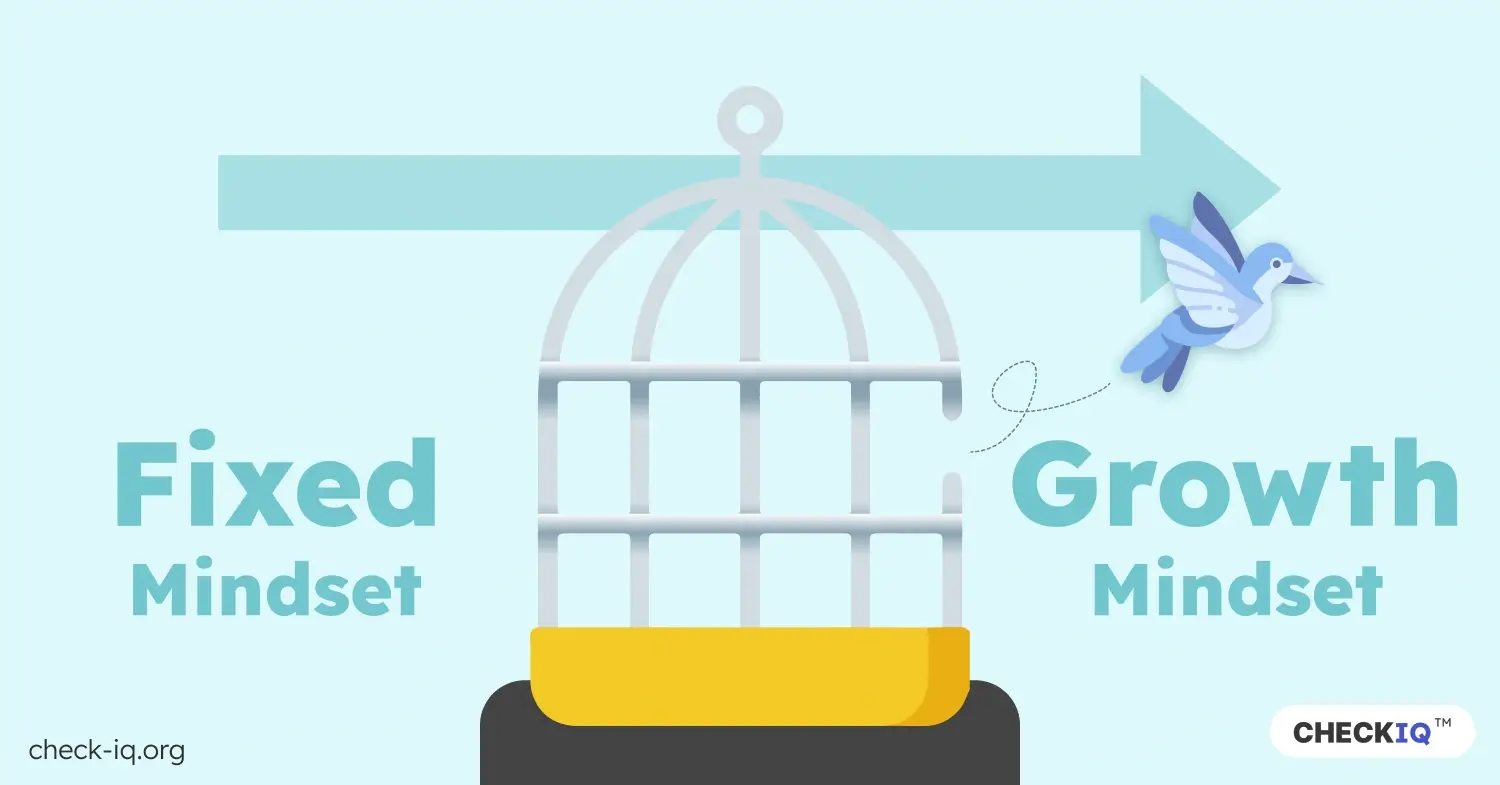
Next, practice reframing your thoughts about ability and intelligence. When you encounter a difficult task, instead of telling yourself, "I can't do this," try, "I can't do this yet." This small change in wording can have a profound impact on your perseverance and willingness to confront new challenges. For this task, cognitive-behavioral therapy can be particularly helpful.
Finally, engage in deliberate practice. While natural talent can offer a starting advantage, it's the focused and persistent effort that propels you to higher levels of performance. Set specific, achievable goals for yourself, and commit to working towards them consistently. By doing this, you're also proving to yourself that progress is possible.

